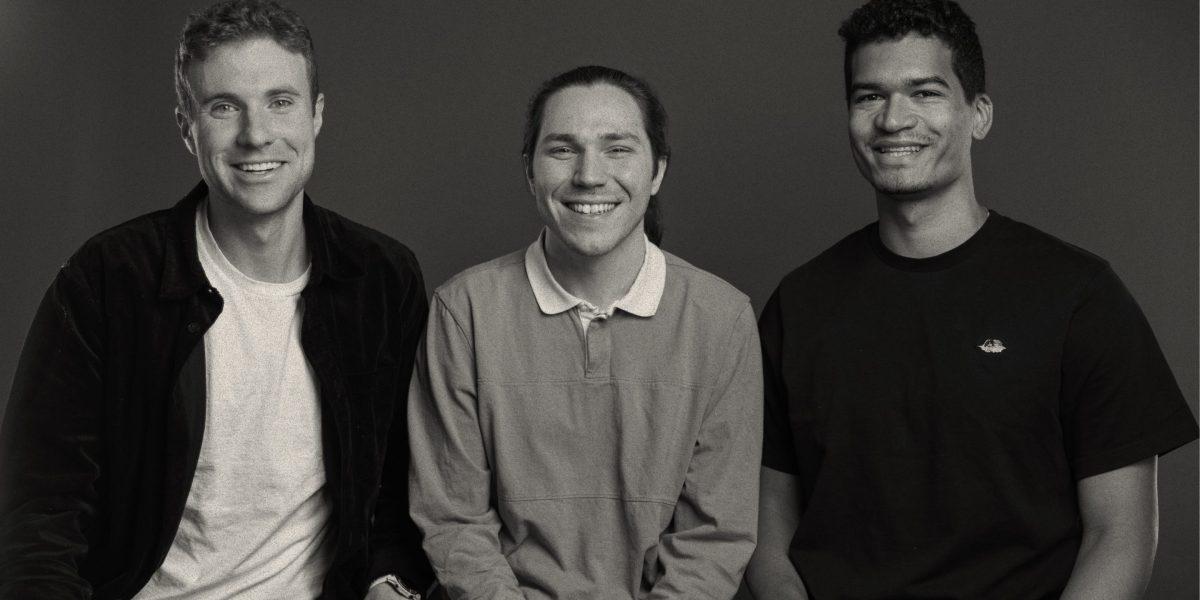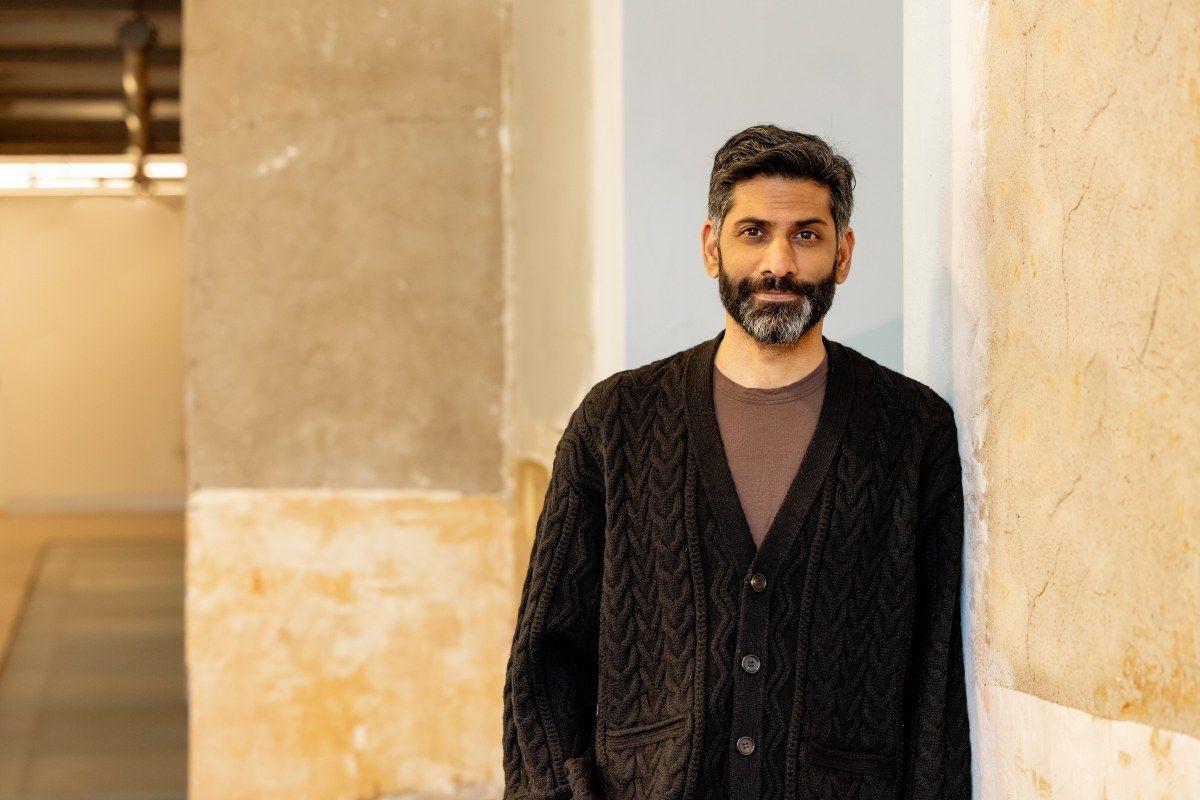Tennr Raises $101M to Revolutionize Patient Referrals with AI
2 Sources
2 Sources
[1]
Exclusive: Health tech startup Tennr raises $101 million Series C at $605 million valuation to fix the patient referral process
It turns out the issue is pervasive across the knotted bureaucracy that is the U.S. healthcare system. Delays, denials, and dropped services are common after the first line of medicine -- primary care, urgent care, and emergency rooms -- refer patients to specialists. Baugh and his cofounders, Trey Holterman and Tyler Johnson, have been working to solve the problem since 2021, when they founded their startup, Tennr. The New York-based company has exploded over just a few short years, recently closing a $101 million Series C funding round, Fortune can exclusively report, less than a year after closing a $37 million Series B. The new round, led by venture capital firm IVP with participation from existing investors including Andreessen Horowitz and Lightspeed, values Tennr at $605 million, making it one of the fastest-growing health tech startups in a vertical increasingly dominated by artificial intelligence companies. And while Tennr has built and trained its own proprietary model to help parse through patient documents and doctors' notes, Holterman -- who is Tennr's CEO -- said that he tries to avoid branding the company as yet another AI healthcare company. "I want to talk about problems and I want to talk about solutions," he told Fortune. "I don't want to talk about just the technology." Before founding Tennr, Holterman had always been interested in healthcare, working as a software engineer at the Medicare platform Health IQ and the fitness company Strava. The idea for tackling patient referrals, however, was born out of his cofounder's experience finding a specialist, as well as his mother, who works in family medicine, complaining about the problem over the years. "I probably should've just listened to my mom sooner, which I think is a tale everybody knows," Holterman joked. When he dug further, he learned that while one-third of Americans are referred for specialty care or some follow-up form of treatment every year, more than half of those never make it to the next step. The goal for Tennr was to create a system that would help decipher the convoluted web of paperwork to help automate the process, figuring out key details like eligibility, benefits, and payer rules. Even before ChatGPT burst onto the scene in late 2022, Tennr's founders began building their own specialized model, trained on tens of millions of medical documents and specifically designed for the use case of patient referrals. Holterman said that even with the growing popularity of generalized AI models from companies like OpenAI and Anthropic, Tennr's is superior for this application because it is ingesting the hyper-specific type of information that wouldn't make financial sense for broader competitors to pursue, like figuring out how to interpret the famously inscrutable doctor's scrawl. "Betting on open source, betting on a proprietary data set that we've accumulated, continues to totally smash benchmarks," Holterman said. (Tennr complies with regulations like HIPAA through de-identification.) While the referral system may seem like a niche market, IVP partner Zeya Yang says that Tennr has found a strategic wedge where it can build out services for specialists, primary care physicians, and patients. Yang first invested in Tennr's Series A when he was at Andreessen Horowitz and decided to lead its Series C after joining IVP in 2024. He said that potential areas for growth for Tennr include tackling new subverticals within medical specialties, which is currently the company's main customer base, as well as selling new tools within the referral workflow, like verifying insurance information. "This can be a very big company if they figure that sort of stuff out," he told Fortune. Tennr is already expanding its product to create a network feature that allows both primary care physicians and patients to have visibility into the referral and payment process. While Holterman declined to provide specific financial figures for the business, he said the company is in the eight figures of revenue, triple the level when it raised its Series B round in October. And as people, and companies, increasingly look at off-the-shelf solutions from AI for their medical needs, he's betting that Tennr's specialized approach will provide a better solution. "It's not about automating work," he said. "It's really about making sure that the patient actually gets the service and understands what it's going to cost, so that they show up."
[2]
AI startup Tennr raises $101M to revolutionize patient referrals - SiliconANGLE
AI startup Tennr raises $101M to revolutionize patient referrals Healthcare document intelligence-focused startup Tennr Inc. today announced it raised $101 million in a funding round to fix what's wrong with patient referrals. The Series C investment was led by IVP with participation from existing backers Andreessen Horowitz and Lightspeed, bringing the company's valuation to $605 billion. The fundraise comes less than a year since the company's last $37 million round in October. Tennr uses proprietary artificial intelligence document analysis tools to help healthcare organizations sift through thousands of paper documents to help organize what is otherwise a complete confusion. The company has developed a suite of algorithms to identify the type of medical document received and accurately tag medical referrals, including those containing handwritten notes. According to the company, referrals are the first line where patients find themselves in limbo due to missing documents, delayed workflows or denials. Any delay in care, or a denial of necessary care, and a patient could decide not to return to their doctor leading to their illness worsening. A referral is the process by which a primary care doctor recommends a patient see a specialist to receive a specific medical service, basically a formal request for an evaluation. The paperwork goes through multiple hands including insurance, billing, medical coordination and more. Any portion of this pipeline can be muddied if the paperwork is unreadable or finds itself left on a desk or forgotten in a filing cabinet. To speed up this process, Tennr trained its large language models on more than 100 million medical documents, 2.3 billion distinct data fields and 8,000 sets of criteria. In the real world, eligibility checks can be wrong almost 8% of the time, the company said, so Tennr determines what questions need to be asked to confirm information. Its RaeLM model extracts data points that are purpose-built for administration to help reduce this error rate. Although big-name LLM companies have risen onto the scene with generalized closed-source models, such as OpenAI and Anthropic PBC, Trey Holterman, chief executive of Tennr, told Fortune these models are not fit to the challenge. This required making a specialized medical AI document model and algorithms that use hyper-specific healthcare data. "Betting on open source, betting on a proprietary data set that we've accumulated, continues to totally smash benchmarks," Holterman explained. Tennr also offers a system that can understand and parse medical call transcripts into actionable data called T3, or Transcript Translation Technology. It combines carefully designed heuristics trained on medical data and probabilistic models to understand the unique cadences of medical calls. This is because most medical phone calls involve someone reading the same things off over and over, such as member IDs. Holterman said the solution isn't about automation, it's about providing a tool that will support patients and deliver a better tool for resolving an immediate need. "It's really about making sure that the patient actually gets the service and understands what it's going to cost, so that they show up," he said.
Share
Share
Copy Link
Health tech startup Tennr secures $101 million in Series C funding, reaching a $605 million valuation. The company aims to streamline patient referrals using AI-powered document analysis.
Tennr's Breakthrough in Healthcare Technology
Tennr, a New York-based health tech startup, has successfully raised $101 million in a Series C funding round, propelling its valuation to $605 million
1
. This significant investment, led by venture capital firm IVP with participation from existing investors including Andreessen Horowitz and Lightspeed, positions Tennr as one of the fastest-growing health tech startups in the AI-dominated healthcare sector1
2
.
Source: Fortune
Addressing the Patient Referral Challenge
Founded in 2021 by Trey Holterman, Tyler Johnson, and another co-founder, Tennr aims to solve a pervasive issue in the U.S. healthcare system: the inefficient patient referral process
1
. The company's mission is to eliminate delays, denials, and dropped services that often occur when patients are referred from primary care to specialists. With one-third of Americans referred for specialty care annually and more than half never making it to the next step, Tennr's solution addresses a critical gap in healthcare delivery1
.AI-Powered Document Intelligence
At the core of Tennr's innovation is its proprietary artificial intelligence model, specifically designed for patient referrals
1
2
. The company has trained its large language models on over 100 million medical documents, 2.3 billion distinct data fields, and 8,000 sets of criteria2
. This specialized approach allows Tennr to:- Decipher complex medical paperwork
- Automate the referral process
- Determine key details such as eligibility, benefits, and payer rules
Tennr's AI can even interpret notoriously difficult doctor's handwriting, a feat that sets it apart from general-purpose AI models
1
.Beyond AI: Focusing on Solutions
While AI is central to Tennr's technology, CEO Trey Holterman emphasizes the company's focus on solving real-world problems rather than simply promoting AI capabilities
1
. "I want to talk about problems and I want to talk about solutions," Holterman stated, highlighting Tennr's commitment to practical applications of its technology1
.Related Stories
Expanding Services and Future Growth

Source: SiliconANGLE
Tennr is not limiting itself to referral processing. The company is expanding its product offerings to include:
- A network feature for primary care physicians and patients to track referrals and payments
1
- Tools for verifying insurance information
1
- Transcript Translation Technology (T3) for parsing medical call transcripts into actionable data
2
These expansions demonstrate Tennr's potential for growth in various subverticals within medical specialties.
Financial Performance and Market Position
While specific financial figures were not disclosed, Holterman revealed that Tennr's revenue is in the eight-figure range, having tripled since its Series B round in October
1
. This rapid growth, coupled with its strategic position in the healthcare market, has attracted significant investor interest.As the healthcare industry increasingly looks to AI for solutions, Tennr's specialized approach and focus on tangible outcomes position it well for continued success. By ensuring patients receive necessary services and understand associated costs, Tennr is not just automating work but improving healthcare delivery and patient outcomes
1
2
.References
Summarized by
Navi
Related Stories
AI Startup Tennr Secures $37M to Revolutionize Healthcare Document Processing
23 Oct 2024•Business and Economy

Qventus Secures $105M in Series D Funding to Expand AI-Driven Healthcare Automation
13 Jan 2025•Business and Economy

Abridge's Valuation Soars to $5.3B as AI Revolutionizes Medical Documentation
25 Jun 2025•Health

Recent Highlights
1
ByteDance's Seedance 2.0 AI video generator triggers copyright infringement battle with Hollywood
Policy and Regulation

2
Demis Hassabis predicts AGI in 5-8 years, sees new golden era transforming medicine and science
Technology

3
Nvidia and Meta forge massive chip deal as computing power demands reshape AI infrastructure
Technology





